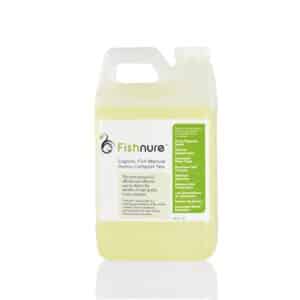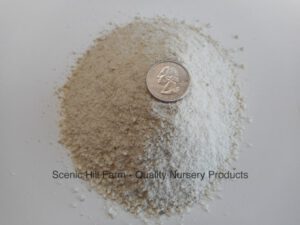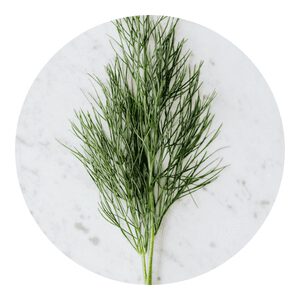How to grow organic Rosemary
Rosemary is an herb that can be used fresh or dried. It has a strong, slightly bitter taste that goes well with many foods.
Rosemary is a good source of iron, calcium, and vitamin B6.
The plant grows best in full sun and well-drained soil.
Here are some tips on how to grow organic rosemary.
Rosemary
Why grow organic rosemary?
Organic rosemary is a flavorful and healthy addition to any kitchen.
Here are a few reasons why you should consider growing organic rosemary:
1. Rosemary is packed with antioxidants and has anti-inflammatory properties. These nutrients can help boost your immune system and protect your body against disease.
2. Rosemary has been shown to improve cognitive function and memory. If you’re looking for a natural way to boost your brain power, organic rosemary is a great option.
3. Rosemary can help relieve stress and tension. The aromatic herb has calming effects that can help you relax and de-stress.
4. Growing your own organic rosemary is easy and rewarding. With just a little care, you can enjoy fresh, homegrown herbs all year long!
The benefits of organic rosemary
Organic rosemary is a culinary herb that not only tastes great, but also offers a number of health benefits.
Rosemary is rich in antioxidants and has anti-inflammatory properties. It also contains compounds that can improve cognitive function and memory.
Rosemary is relatively easy to grow, and can be done so indoors or outdoors. When growing organic rosemary, it’s important to start with a high-quality organic soil mix and to water regularly.
Fertilize every few weeks with an organic fertilizer.
Rosemary can be harvested year-round, although the flavor is best just before the plant flowers.
To use rosemary, strip the leaves from the stem and chop finely.
Add to soups, stews, casseroles, or roasted meats for flavor. Rosemary can also be used to make a delicious tea.
How to plant organic rosemary
Organic rosemary is a great addition to any home garden.
Here are some tips on how to plant and care for your organic rosemary plants:
1. Choose a location in your garden that gets full sun.
Rosemary plants need at least 6 hours of sunlight each day.
2. Prepare the soil by loosening it up and adding some organic compost.
Rosemary plants like well-drained, sandy soil.
3. Plant your rosemary seedlings or transplants 18 inches apart.
Water them well after planting.
4. Once your plants are established, water them deeply once a week during the growing season (spring and summer).
Cut back on watering in the fall and winter months.
5. Trim your plants regularly to encourage new growth and prevent them from getting too leggy.
How to care for organic rosemary
Organic rosemary is a wonderful addition to any kitchen garden.
Here are a few tips on how to care for your organic rosemary plants:
Water your organic rosemary plants regularly, especially during hot, dry periods.
Avoid getting the leaves wet when watering as this can cause them to rot.
Fertilize your organic rosemary plants every few weeks with a balanced fertilizer.
Prune your organic rosemary plants regularly to encourage new growth. You can also use the pruned branches to make flavorful Rosemary tea!
Harvest your organic rosemary leaves as needed.
The best time to harvest is in the morning after the dew has evaporated but before the heat of the day sets in.
Rosemary Growing - An extremely strong evergreen shrub, used as a spice and even as an air purifier of toxins, so it is not recommended to pick rosemary from contaminated areas.
Chappy The Gardener
Pests and diseases of organic rosemary
Pests and diseases are a common occurrence in organic rosemary gardens.
Some of the most common pests include: aphids, caterpillars, whiteflies, and spider mites.
These pests can be controlled with a variety of methods, including: companion planting, using traps, and making homemade insecticidal soap.
Diseases are also a threat to organic rosemary plants.
The most common disease is powdery mildew, which can be controlled with a variety of fungicides.
Other diseases include: black spot, root rot, and Verticillium wilt. These diseases can be controlled with proper irrigation and crop rotation practices.
Where does rosemary grow best?
Rosemary grows best in hot, sunny climates with well-drained soil. The plant is drought-tolerant and can even survive in poor, rocky soils.
Rosemary can be grown as a perennial in USDA hardiness zones 8 through 10.
In cooler climates, rosemary can be grown as an annual.
To ensure that your rosemary plants have enough room to grow, plant them at least 2 feet apart.
If you live in an area with particularly harsh winters, you may want to consider planting your rosemary in a pot that can be brought indoors during the coldest months.
What is the best month to plant rosemary?
The best month to plant rosemary is September.
The herb does best when planted in the fall, so that it can establish roots before the hot, dry summers.
Rosemary can be started from seed, but it is easier to find and purchase plants from a nursery.
Be sure to select a spot in your garden that receives full sun and has well-drained soil.
Rosemary will need to be watered regularly, especially during the hot summer months.
How often should I water rosemary?
Rosemary is a hardy herb that can withstand long periods of drought.
However, during the hot summer months, it is important to water rosemary regularly to prevent the leaves from turning brown and wilting.
A good rule of thumb is to water rosemary once a week, making sure the soil is evenly moist but not soggy.
If you live in an area with high humidity, you may need to water more often. Rosemary can also be sensitive to salt, so if you live in an area with high levels of salt in the soil, be sure to water more frequently.
How long do rosemary plants live?
Rosemary plants are a type of evergreen, meaning they have leaves all year round.
They can live for many years with the right care.
To keep your rosemary plant healthy and long-lived, it’s important to give it enough sunlight and water.
Rosemary plants need at least six hours of sunlight each day to stay healthy.
They also need to be watered regularly, about once a week or when the soil is dry.
If you follow these simple care instructions, your rosemary plant can thrive for years.
Enjoy the fresh taste of rosemary in your cooking for years to come!
Should you let rosemary flower?
Although rosemary is commonly known as an herb, it is technically a woody perennial.
Both the leaves and flowers of the plant are edible, and can be used to add flavor to a variety of dishes. Many people choose to let their rosemary plants flower, as the flowers are also quite beautiful.
There are a few things to keep in mind if you do decide to let your rosemary flower.
First, flowering can cause the plant to become less productive in terms of leaf production. If you’re growing rosemary for its leaves, you may want to trim off any flowers that appear.
Secondly, rosemary flowers attract bees, which some people may find bothersome. If you have allergies or simply don’t like bees, you may want to avoid letting your rosemary flower.
Does rosemary come back every year?
Rosemary is a perennial herb, meaning it comes back every year.
You don’t have to do anything special to get it to come back – just plant it once and it will keep coming back year after year.
Rosemary is a tough plant and can tolerate some neglect. It doesn’t need a lot of water or fertilizer, so if you’re forgetful, rosemary is a good choice for you.
Just make sure to give it some sun – it needs at least six hours of sunlight a day to thrive.
If you live in an area with harsh winters, you may need to protect your rosemary plants from the cold. Rosemary can handle light frosts, but severe cold will damage the plant.
If you think there’s a chance of frost in your area, cover your rosemary plants with sheets or blankets overnight.
Does rosemary need a lot of sun?
Rosemary is a versatile herb that can be grown in a number of different environments.
While it does prefer full sun, it can also tolerate partial sun and even some shade. This makes rosemary an ideal plant for growing in a wide range of spaces, from small indoor pots to large outdoor gardens.
When growing rosemary indoors, make sure to place it in a sunny spot near a window.
If you don’t have a lot of natural light available, you can supplement with grow lights. Outdoor plants will need at least six hours of direct sunlight each day.
If your garden doesn’t get that much sun, try planting rosemary near a south-facing wall where it will receive reflected light.
Watering is another important factor when growing rosemary. The soil should be kept moist but not soggy.
How to grow rosemary hydroponically
Rosemary is a perennial herb that is part of the mint family. Native to the Mediterranean, it is a popular ingredient in many dishes.
Rosemary can be grown hydroponically with some basic equipment and knowledge.
Hydroponic systems can provide a controlled environment for growing plants without soil.
A Rosemary hydroponic system can be set up with a simple irrigation system, grow lights, and an air pump.
The key to success with hydroponics is to maintain the proper nutrient levels and pH in the water.
Rosemary plants like warm weather and plenty of sunlight. When growing rosemary hydroponically, it is important to keep the roots cool by using a water chiller or keeping the reservoir in a cool place.
The ideal temperature for rosemary is between 68-77 degrees Fahrenheit.
How long does rosemary take to grow hydroponically?
Rosemary is a popular herb that is often used in cooking. It has a strong, distinct flavor that can enhance many dishes.
Rosemary can be grown hydroponically, which is a method of growing plants without soil. This type of growing is done by using nutrient-filled water instead of soil.
Hydroponic rosemary can take anywhere from two to three weeks to germinate.
Once the seedlings have emerged, they will need to be transplanted into their own individual pots. After about eight weeks, your hydroponically grown rosemary should be ready to harvest.
Can rosemary grow indoors in water?
Rosemary is an evergreen herb that is native to the Mediterranean. It is a member of the mint family and has a strong, pungent, slightly lemony aroma.
The leaves are used fresh or dried in cooking and have a wide range of culinary uses. Rosemary can be grown indoors in water as long as it has access to plenty of sunlight.
To grow rosemary in water, start with a young plant from a nursery or garden center. Place the plant in a sunny spot near a south-facing window.
Fill a clean glass jar with room-temperature water and place the stem of the plant in the water. Change the water every few days to keep it fresh.
When the roots are about 2 inches long, you can transplant the rosemary to a pot filled with well-draining potting mix.
How to grow rosemary aquaponics
Aquaponics is a unique and efficient way to grow organic rosemary.
The system uses fish waste as nutrients for the plants, and the plants help to filter the water for the fish.
Aquaponics is a great way to grow rosemary without using any soil, and it is also a very space-efficient method.
To set up an aquaponics system, you will need:
-A fish tank
-A growing bed for the plants
-Pump
-hose
-gravel
1. First, set up your fish tank according to the manufacturer’s instructions. It is important to have a good filtration system in place so that the water stays clean for the fish.
2. Next, set up your growing bed on top of the fish tank. The plants will grow in the bed and take up most of the space. The bed should be about 4 inches deep and lined with plastic or other waterproof material. The bed should have holes in it so that water can flow through it to the fish tank.
3. Finally, connect the pump to the fish tank and the hose to the pump. Make sure that there is enough water flowing through the hose to keep it full and that it isn’t moving too fast.
4. Fill the grow bed with gravel and add plants.
How to grow rosemary in a greenhouse
Rosemary is an aromatic herb that is commonly used in cooking.
It can be grown indoors or outdoors, but does best in a greenhouse environment.
Rosemary requires full sun and well-drained soil.
The plants should be spaced about 18 inches apart. Water the plants regularly, but do not over-water them.
When the plants are about 6 inches tall, you can begin to harvest the leaves.
Cut the stems back by about one-third after each harvest to encourage new growth.
Does rosemary grow well in a pot?
Rosemary can make a great addition to any kitchen windowsill herb garden.
But whether or not you can successfully grow rosemary in a pot depends on a few factors.
First, rosemary plants need full sun—at least six hours of sunlight per day. If your windowsill doesn’t get that much sun, you might have to supplement with grow lights.
Second, rosemary plants like well-drained soil. If your pot doesn’t have drainage holes, you’ll need to water very carefully so that the plant doesn’t get too wet. Overly wet soil can cause the roots to rot.
Finally, rosemary is a relatively drought-tolerant plant, so you don’t need to worry about watering it too often.
How big of a pot do you need to grow rosemary?
Rosemary is an evergreen herb that is native to the Mediterranean. It is a member of the mint family and has a strong, pungent flavor.
Rosemary can be used fresh or dry, and is often used to flavor meats, soups, and stews.
Rosemary is relatively easy to grow, and can be started from seed, cuttings, or divisions.
It prefers full sun and well-drained soil. Once established, rosemary is quite drought tolerant.
When growing rosemary from seed, start the seeds indoors 6-8 weeks before the last frost date.
Sow the seeds on the surface of moistened potting mix and lightly cover with vermiculite.
Keep the seedlings moist but not wet and transplant them outdoors after all danger of frost has passed.
The best organic fertilizer for rosemary
Organic rosemary is a popular herb that is used in many dishes. It is also a great plant to have in your garden because it is easy to care for and does not require much fertilizer.
However, when you do fertilize your organic rosemary, you want to use an organic fertilizer that will not harm the environment.
There are many different types of organic fertilizers on the market, but not all of them are created equal. You want to choose an organic fertilizer that has a high nitrogen content.
Nitrogen is an essential nutrient for plants, and it will help your organic rosemary grow healthy and strong. You should also look for an organic fertilizer that contains other essential nutrients like phosphorus and potassium.
When you are choosing an organic fertilizer for your rosemary, you also want to make sure that it is safe for use around food.
Compost
Organic rosemary is a wonderful addition to any garden, and using compost as an organic fertilizer is a great way to keep it healthy and vigorous.
Here are a few tips on how to use compost to fertilize your organic rosemary:
1. Add a layer of compost around the base of the plant, being sure to not cover the stems.
2. Water the plant deeply after applying the compost.
3. Repeat every few weeks during the growing season.
Using compost as an organic fertilizer is an excellent way to provide your organic rosemary with the nutrients it needs to stay healthy and thrive.
Worm castings
Adding worm castings to your rosemary plants is a simple way to give them a nutrient boost.
Here’s how to do it:
1. Start by mixing together 1 part worm castings and 2 parts water.
2. Then, using a watering can or garden hose, apply the mixture to the base of your rosemary plants.
3. For best results, do this once every two weeks during the growing season.
Worm castings are an excellent source of nutrients for rosemary plants, and they’re also very easy to use.
Just mix them with water and apply at the base of your plant – no muss, no fuss!
Horse manure
Horse manure is rich in nitrogen, phosphorus, and potassium, making it an ideal organic fertilizer for rosemary.
To use horse manure as a fertilizer, simply spread it around the base of the plant.
For best results, apply horse manure to rosemary in early spring before new growth begins.
Cow manure
The best time to use cow manure for your organic rosemary fertilizer is during the early morning hours.
You will want to make sure that the manure is fresh and not too dry. If it is too dry, it will not break down properly and could harm your plants.
To apply the cow manure, simply spread it around the base of the rosemary plant.
Be sure to avoid getting any on the leaves, as this could cause them to burn. Once you have applied the manure, water it in well.
Sheep manure
When it comes to rosemary, Sheep manure organic fertilizer is one of the best options for a natural and healthy way to give your plant the nutrients it needs.
This type of fertilizer is made from decomposed sheep manure, which is high in nitrogen and other essential minerals. It also contains beneficial microbes that help break down organic matter and improve soil health.
To use Sheep manure organic fertilizer, simply mix it into the soil around your rosemary plant at a rate of 1 part fertilizer to 4 parts soil.
Water the area well after application.
For best results, reapply every 4-6 weeks during the growing season.
Donkey manure
Organic rosemary can be a finicky herb to grow. The key to a bountiful harvest is using the right organic fertilizer.
Donkey manure is an excellent organic fertilizer for rosemary. Here’s how to use it:
Donkey manure is high in nitrogen, which is essential for healthy growth in rosemary plants.
It also contains other nutrients that roses need, such as phosphorus and potassium. To use donkey manure as an organic fertilizer, simply mix it into the soil around your rosemary plants.
For best results, apply the manure in early spring before new growth begins.
This will give the plants a boost of nutrients that they can use throughout the growing season.
You can also apply a second application in late summer to help encourage new growth and extend the harvest into fall.
Goat manure
There are many benefits to using goat manure as organic fertilizer for rosemary.
Goat manure is a rich source of nitrogen, phosphorus, and potassium, which are all essential nutrients for healthy plant growth.
In addition, goat manure contains high levels of organic matter, which can improve soil structure and help retain moisture.
To use goat manure as fertilizer, simply spread it around the base of the plant.
For best results, apply it before watering or rain is expected so that the nutrients can be quickly absorbed into the soil.
Be sure to avoid getting any on the leaves of the plant, as this can cause leaf burn.
Rabbit manure
Organic rosemary fertilizer can be made using rabbit manure. This is a great way to provide your plants with the nutrients they need without using any synthetic materials.
Here is how you can make and use this organic fertilizer:
1. Collect rabbit manure from a local farm or pet store. Be sure to clean it well before using it.
2. Mix the rabbit manure with water in a ratio of 1:10.
3. Use this mixture to water your rosemary plants once a month.
4. You can also add some of this mixture to the soil around your plants when you are preparing them for planting or transplanting.
Chicken manure
If you’re looking for an organic way to fertilize your rosemary, consider using chicken manure.
Chicken manure is high in nitrogen, phosphorus, and potassium, which are all essential nutrients for plants. It’s also relatively easy to find and use.
Here’s how to do it:
First, collect the chicken manure. You can get this from a local farm or purchase it from a gardening store.
make sure the manure is fresh so that it doesn’t burn the plants.
Next, mix the chicken manure with water in a ratio of about 1:10.
This will help to dilute the concentration of nutrients so that they don’t damage the plant roots.
Then, apply the mixture to the soil around the base of the plant.
Be sure to avoid getting any on the leaves, as this could cause them to burn.
Fish manure
Rosemary is a perennial herb that is native to the Mediterranean.
It is a member of the mint family and has a strong, pungent aroma. The leaves are used fresh or dried in many dishes.
Rosemary is also used as an ornamental plant in gardens.
Fish manure organic fertilizer is an excellent choice for rosemary.
This type of fertilizer is high in nitrogen and phosphorus, which are essential nutrients for healthy growth.
Apply fish manure organic fertilizer to the soil around your rosemary plants every two weeks during the growing season. Be sure to water the plants thoroughly after applying fertilizer.
Green manure
Green manure organic fertilizer can be used to fertilize rosemary.
To use green manure, dig a trench around the rosemary plant, then add green manure to the trench and water it in.
The green manure will decompose and release nutrients into the soil, which will be taken up by the rosemary plant.
This is an easy way to organically fertilize rosemary and improve its growth.
Blood meal
Organic rosemary is a great way to add flavor to your food. But did you know that it can also be used as an organic fertilizer?
Blood meal is a great source of nitrogen and other nutrients that roses need.
Simply mix 1 part blood meal with 2 parts water and apply it to your rosemary plants every 2-3 weeks.
You’ll see bigger, healthier plants in no time!
Bone meal
Organic rosemary fertilizer is a great way to keep your rosemary plants healthy and growing strong.
Bone meal organic fertilizer is a natural source of phosphorus and nitrogen, two essential nutrients for plant growth.
This type of fertilizer also helps promote root development and strengthens plant cell walls, making your rosemary plants less susceptible to disease.
To use bone meal organic fertilizer, simply mix it into the soil around your rosemary plants at a rate of 1 cup per 10 square feet.
For best results, apply the fertilizer in early spring before new growth begins.
Alpaca manure
Alpaca manure is an excellent organic fertilizer for rosemary. It is high in nitrogen and other nutrients that are essential for healthy plant growth.
To use alpaca manure as a fertilizer, simply mix it into the soil around the base of the rosemary plant.
For best results, apply the fertilizer in early spring before new growth begins.
Yak Manure
Organic rosemary fertilizer can be made at home using yak manure.
This is a great way to fertilize your plants without using any synthetic chemicals.
Here’s how to do it:
1. Collect yak manure from a local farm or ranch. You’ll need about two gallons for each plant.
2. Mix the manure with water in a ratio of 1:3.
3. Apply the mixture to the base of your rosemary plants, being careful not to get any on the leaves.
4. Water the plants as usual and you’re all done!
Bird Manure
Organic rosemary is a healthy and flavorful herb that can be used in many dishes.
To ensure your rosemary plants are getting the nutrients they need, you can use bird manure organic fertilizer.
This type of fertilizer is made from bird droppings and is an excellent source of nitrogen, phosphorus, and potassium. It’s also relatively low in cost and easy to find.
To use bird manure organic fertilizer, simply mix it into the soil around your rosemary plants. You can do this once a month or as needed.
Be sure to wear gloves when handling the manure, as it can be quite smelly.
You should also avoid getting any on your skin or clothes. Once you’ve mixed the fertilizer into the soil, water your plants as usual.
What Should You Plant Next to rosemary
Rosemary is a versatile herb that can be used in many dishes, from savory to sweet.
But what should you plant next to rosemary? Here are a few suggestions:
-Lavender: Both herbs have similar requirements for sun and water, and they also benefit from being planted near each other because they can help repel pests.
-Thyme: Like rosemary, thyme is a versatile herb that can be used in many dishes. It also has similar sun and water requirements.
-Sage: Sage is another herb with similar growing requirements as rosemary.
It also has medicinal properties and can be used to make teas and tinctures.
how to get rid of ants on rosemary plants
If you have ants on your rosemary plants, don’t worry – there are a few organic methods you can use to get rid of them!
One easy way is to sprinkle some diatomaceous earth around the base of the plant.
You can also try making a mixture of 1 part vinegar to 3 parts water and spraying it on the leaves.
Finally, ants hate citrus, so you can try wiping the leaves down with a lemon or orange peel.
Whichever method you choose, just be sure to keep an eye out for new ant activity and repeat the treatment as necessary.
Major Health Benefits Of Rosemary
Rosemary is an aromatic herb that is native to the Mediterranean. It is a member of the mint family and has a woody, evergreen flavor.
The leaves are used fresh or dried in cooking and have a variety of health benefits.
Rosemary is a good source of antioxidants and has anti-inflammatory properties. It can help improve circulation and digestion and is also thought to boost memory and cognitive function.
Rosemary can be consumed in many different ways, including as a tea, essential oil, or in capsules.
While more research is needed to confirm the health benefits of rosemary, there is evidence that this herb can be beneficial for overall health.
Rosemary may be especially helpful in managing stress and improving mood.
Improving and preserving memory
One of the initial reports that testified to the health benefits of rosemary was regarding its ability to improve memory and develop intelligence and concentration.
While this claim is still in the research and testing stages, the effect of rosemary on the brain indicates an increase in the ability to remember and pull things out, which helps keep the brain young.
It has also been found that rosemary has the ability to improve cognitive activity in the elderly, as well as in people suffering from more acute cognitive disorders, such as dementia.
Relieving stress
Japanese researchers have concluded that rosemary oil can protect the body from oxidative stress created by free radicals, and relieve stress.
Also, the scent of rosemary itself is associated with improving mood, and its ability to clear the head, relieve stress and even chronic anxiety.
It should be noted that applying vegetable oil to the body may lead to a similar result but do not swallow it or consume it with food.
Cancer prevention
An Australian study found that rosemary extract, which contains antioxidants such as carnosic acid, can suppress the development of tumors in several organs, such as the colon, breast, liver and stomach, as well as help prevent melanoma and leukemia.
Another study conducted in 2010 in “Plant Foods for Human Nutrition” evaluated the effect of rosemary on human cancer cells, using cell culture of prostate, breast and liver cancer cells that received daily exposure to rosemary grass.
The findings indicated that the plant was indeed able to inhibit the spread of cancer cells and killed quite a few existing cancer cells in all these cases.
Following the good results, rosemary extract is a potential candidate to be included in a diet that fights cancer, with pre-determined doses to avoid poisoning.
Stomach treatment
The anti-inflammatory effects of rosemary have allowed different cultures to use it as a natural remedy for irritable bowel syndrome, constipation, bloating and diarrhea.
The rosemary acid found in the plant relaxes the muscles in the trachea and intestines, which encourages the production of bile and protects the liver.
Also, researchers from the University of Medical Sciences in Libya have found that this acid has the potential to treat and even prevent the appearance of peptic ulcer in the liver.
Therefore, if you suffer from one or another phenomenon related to the digestive tract, you should add rosemary to your regular menu, which will help you quickly regulate the function of the intestines and the entire digestive system.
Treatment of bad breath
Since rosemary is a natural antibacterial substance, it works great as a breath freshener, while improving the health of the oral cavity.
All you have to do is soak some rosemary leaves in a glass of warm water, then gargle the water several times, which will give you a fresh and naturally clean breath throughout the day or night.
Stimulating blood circulation
Rosemary acts as a natural stimulant of the body, increasing the production of red blood cells as well as blood circulation.
Its consumption encourages the nutrients to move to the cells that require repair and thereby it ensures proper metabolic activity.
Encouraging hair growth
One of the traditional uses of rosemary oil is to encourage hair growth, and although not enough scientific research has been done on humans, findings from a recent study on laboratory mice have shown that rosemary leaf extract significantly increased the hair growth of mice.
Pain relief
Rosemary has been used for many years as a painkiller, using an ointment that is applied to the affected area, to relieve the unpleasant sensations.
Moreover, when consuming rosemary orally, it is used as a painkiller and can even reach areas that are a little more difficult to treat such as headaches. Therefore, one of the popular uses of rosemary is for the treatment of migraines.
Treatment of infections
Probably the most important role of rosemary is as an anti-inflammatory agent in the body.
Carnosic and carnosolic acids are used as antioxidants, and thanks to this property along with the fact that they are anti-inflammatory, they have been linked to reducing inflammation in muscles, blood vessels and joints.
These properties make rosemary treatment effective in treating high blood pressure, arthritis and injuries caused during physical exertion or after surgery.
Cleansing the body of toxins
Rosemary is known as a natural diuretic, which helps flush out toxins from the body more effectively when urinating.
Furthermore, increasing the rate at which water leaves the body can help push pathogens, salts, toxins and even excess fat, if the use of the same diuretic is done regularly.
Plant information:
Organic growing conditions for rosemary:
No special requirements, extra strong plant
How to get rosemary for organic growing:
Cutting, seedling
Disadvantages of growing rosemary:
Dominant, allopathy
Irrigation conditions for growing rosemary:
Little to no watering
Light conditions in optimal condition for growing rosemary:
Full sun
Recommended date for planting rosemary:
Spring, but given all year
Pests of the rosemary plant:
Aphids, fungi
Pruning date for rosemary:
All year round
Pruning for Rosemary:
Weak and sick branches
Rosemary plant size:
0.4-1.6 m
Rosemary growth rate:
Rapid growth
You can also grow rosemary in a pot:
Yes
Flowering plant:
Rosemary flowering date:
Spring / Summer (May – August)
The powder for rosemary is made by:
Bees
General information about the rosemary flower:
Small purple flowers
Dilution of rosemary blossoms:
When the plant is small or weak – it is recommended to dilute
Edible leaves:
Date of velvet rosemary leaves:
All year round
Proper pruning of leaves in rosemary:
Pruning is not really important
Information about rosemary leaves:
Pointed small leaves with a strong aromatic taste
Use of rosemary leaves:
Spice, drying
In conclusion, growing organic rosemary is a great way to add flavor to your dishes while also getting the benefits of an easy-to-grow herb.
With a little care, you can have a thriving rosemary plant that will provide you with fresh herbs for years to come.
Click To Grow
Helps Us Grow – Share If You Like








































